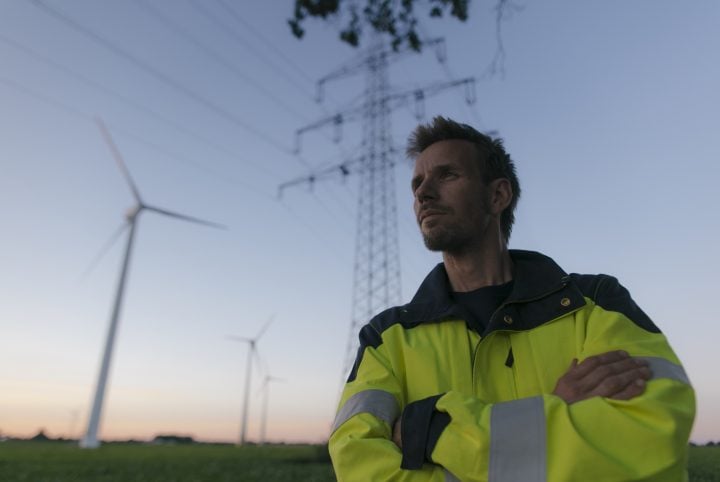Michael Pascoe: Welcome to Thought Capital, the podcast that delves into the wealth of ideas created by the experts at Monash Business School in Melbourne, Australia.
Michael Pascoe: Most female leaders are found in healthcare and education sectors. The fewest are in mining and construction, according to the Workplace Gender Equality Agency. No surprises there. The same agency reports female representation of the boardrooms is static at around 25%. Only 16% of Australian CEOs are women.
Lata Gangadharan: There does seem to be a social norm of male leadership, and what that means is that when you look around, you only see male leaders. So you feel, as a woman, that you don’t really belong in that position.
Michael Pascoe: In this episode of Thought Capital, we’ll be hearing from a woman who’s defied the statistics to become Australia’s most senior female academic leader. Professor, Margaret Gardner, Vice Chancellor of Monash University since 2014 and chair of Universities Australia. Welcome. Throughout your career, you’ve pushed hard to advance the cause of women in academia. Have you succeeded?
Margaret Gardner: Oh, no.
Michael Pascoe: Well, you are Vice Chancellor. You’re meant to be in charge.
Margaret Gardner: Ah, yes, would that it were so. It’s certainly true that in my leadership career, I’ve had the opportunity to work actually quite directly on issues to do with diversity and gender equality in particular. My very first senior executive job was called a pro-vice-chancellor of equity, and I was responsible for equal employment opportunity, which generally meant gender equality for women in universities or of the university I was in. Also for issues to do with student equity, which included issues regarding students of low socioeconomic background and students of non-English speaking background, indigenous Australians, and the like. So that was my very first senior executive job, was with responsibility for advancing those goals.
Margaret Gardner: I’d like to think I had some impact when I got to the position of being a Vice Chancellor and in a position where you could look at, for example, higher senior executives in the university. Then I’ve always been quite conscious of how we do performance bonuses, or ensuring that we have very clear metrics by which we decide how one position is paid against another. And so I’ve been able to put some of the things I understand into practice more directly in what I do. I would not say that I feel that I’ve been successful.
Michael Pascoe: Why not?
Margaret Gardner: It really has been a much slower journey in terms of improving outcomes for women or getting greater gender equality in our society than I at all imagined when I was an undergraduate student. So I took one of the first subjects offered on this particular topic many decades ago while I was an undergraduate, and I don’t think I expected then at age 19, or whatever I was, that I would actually be as slow as it’s been.
Margaret Gardner: And that’s not to say that there haven’t been advances. There have been. There have been some shifts in culture. But culture is slower to shift. Much slower to shift than the things you can change if you change a policy or change a piece of legislation or change regulation. And we know that generally about cultural change. But I guess it’s just living with the fact that it’s as slow as it is.
Michael Pascoe: It is progressing though. Is that important to you?
Margaret Gardner: Yes. It’s important that we attempt to have a society that is open and diverse. And that’s not just a question of women, but it’s a question of diversity across race and ethnicity, religion, sexuality. And so I think we have expanded and we are a little better at articulating a number of the issues. We have more open debate about a number of those issues. I think we have had successes, particularly with women. But all situations in which there is significant advantage are very slow to be secured by those who have less, whether that is by virtue of socioeconomic background or gender or race or ethnicity or sexuality.
Michael Pascoe: There have been times in your own career where being a woman has been a disadvantage and an advantage?
Margaret Gardner: Well, I guess you could argue that it was unlikely they were going to appoint a male to that senior executive role that they created, which was my first one. So I guess that was a slight advantage. I’ve tended, I must say, actually when thinking of myself, not to think too clearly in those terms and have sort of just thought about what I might do and how. It doesn’t mean I’m blind to what happens around me or context. But I’ve tended to, say, view it through a distant academic lens a lot of the time and say, “Ah, yes. Well, these are the things I might expect.”
Margaret Gardner: I always knew that I would have to have very strong and demonstrated experience in as much as was possible to secure a leadership job. I anticipated that it was unlikely someone was going to say, “I think she’s got capability and potential,” and that they would always look for the experience.
Michael Pascoe: I can’t remember careers counsellors at schools ever saying, “Well, would you like to be a Vice Chancellor at the university,” as an option.
Margaret Gardner: No.
Michael Pascoe: How did your career go from being an academic into leadership to where you are now?
Margaret Gardner: The point at which I imagined being the Vice Chancellor was the point at which I was already holding a senior executive job reporting to a Vice Chancellor. So you might argue it was straight in front of me, ’cause that was the position I was reporting to.
Michael Pascoe: Well, to move into leadership.
Margaret Gardner: I never put my hand up. I don’t think I would ever have been considered to be a prefect or a school captain at school. So I’m not someone who sought to be the leader of the whatever. I do have activist tendencies, so I probably stepped forward. [crosstalk 00:06:45] I like to contribute. I built up experience, and therefore, the possibility of doing other things came to me and then became obvious to me that they were things that I could do and might enjoy doing.
Michael Pascoe: There’s long been debate about why women have not had the same leadership opportunities as men. The way forward could be to consider a different path for women to gain senior management roles. What if women were presumed to be interested in any position they qualified for until they say no? What if women always stayed in the running for any promotion unless they chose to opt out? Lata Gangadharan is a professor of economics at Monash University. Her research focuses on gender and diversity. And she uses lab and field experiments to understand economic behaviour. Professor, welcome to Thought Capital. Lately, your research is focused on this opting out. What do you mean?
Lata Gangadharan: So the reason we thought about implementing the mechanism called an “opt-out mechanism” is because this problem that you don’t really see many women in leadership positions. And one of the reasons we think this is true is because most organizations use an opt-in method to select a leader. And what does that really mean? What that means is that when there’s a leadership position available, then there is basically a call for applications for this position and people have to put their hand up to be chosen to be a leader. So you have to explicitly do something to become a leader.
Michael Pascoe: And there’s an assumption that women don’t stick their hand up?
Lata Gangadharan: So we think that that might be true, at least for some women. And maybe that’s true for some men as well. And one of the reasons why we think this could be true is because it might be considered very aggressive to put your hand up, because you think you’re really good or smart or much better than everybody else. And this may actually, at least in the case of women, it has been shown to backfire and that it becomes more difficult for them to actually get the position if they put their hand up.
Lata Gangadharan: The other reason is that there does seem to be a social norm of male leadership. And what that means is that when you look around, you only see male leaders, so you feel, as a woman, that you don’t really belong in that position. And that, again, could be true for some men as well. So this kind of a stereotype is very difficult to overcome for some people.
Lata Gangadharan: So when you have an opt-out mechanism, then all the eligible people would be considered to be leaders. And they can, of course, choose to opt out if they don’t want to be a leader. They still have the freedom of choice.
Michael Pascoe: And we have opt-out, opt-in debates about other areas. About life insurance, health insurance, superannuation, organ donation.
Lata Gangadharan: Absolutely. Yes. And they have been seen to be very successful in many of these areas.
Michael Pascoe: So in your experiment, you had three scenarios. A leadership position that would pay well, a leadership position that would distribute higher pay throughout the organization, and then an altruistic position, there’s no monetary gain.
Lata Gangadharan: Right.
Michael Pascoe: What did you find?
Lata Gangadharan: So what we found was that in one of these leadership scenarios, there is a gender gap. So it’s in the third scenario that you mentioned, where all the profits from the tasks that they do in this experiment, it goes to a third party. And in that scenario, we find that women choose to be leaders less often as compared to men.
Michael Pascoe: So when there’s money in it, women are as likely to put their hands up as men, but when it’s altruistic, are you telling me women aren’t altruistic? That we males are actually nicer people?
Lata Gangadharan: So that’s an important point, because in the experiment … One of the advantages of having these kind of experiments, which have some control vis-à-vis the real world is that in the experiment, actually, opportunity cost is kept constant. So if you think about our experiment, the opportunity cost of being a leader is actually zero in this experiment. Whereas, if you’re thinking of a CEO, the opportunity cost of their being the leader is actually very high. If they have a family or friends, they hardly see them because they’re always working. And this opportunity cost may be higher for women as compared to men. So when you think about the net gains, so the monetary benefits that they get from being a leader as compared to the cost, so the opportunity cost, then for some people, it doesn’t make sense to put their hand up. And that’s what we’re showing in the experiment.
Michael Pascoe: So women are saying, “Show me the money and I’ll put my hand up.” If there’s no money, opt-out becomes a major factor. If you have opt-out, how big is the change?
Lata Gangadharan: So in the scenario where we do see a gender gap, where we introduce opt-out, this gender gap disappears. What that means is that women are as likely to choose to be leaders as compared to men. And I guess what our mechanism is showing is that at every level, if you can have ways of encouraging women to participate in this process, then that creates an appropriate pool of people whom policy-makers or decision-makers can choose from. But if you don’t really have enough women at every level, then it’s very hard to choose women at the senior level.
Michael Pascoe: And it just makes sense to consider all the people for a leadership role, doesn’t it?
Lata Gangadharan: It does. It’s just that you have to be a bit careful, because that obviously increases transaction costs for the people who are making these decisions. So it needs to be done in a way such that the role is very well-defined and the criteria for becoming a leader are precisely defined. In organizations where you can do that, where there are specific roles that people are undertaking and there are specific criteria for being in that role, then this will be a very successful mechanism.
Michael Pascoe: Has it been tried in any real organizations or is it purely in the lab at present?
Lata Gangadharan: We’ve been talking to many organizations and the private sector to the public sector who are all very interested. We don’t have it operational yet, but we are in conversation with them.
Lata Gangadharan: And the other aspect to think of is many organizations are already doing some things to improve diversity measures in their organizations, right? So for example, they have these training programs. They also have, from the organization side, they want to do some unconscious bias kind of training. And some organizations are actually even thinking of quotas for affirmative action. But many of these different kinds of methods haven’t really been tested properly. So we don’t really know how effective these are. And in the case of affirmative action, actually, we find that the evidence is really mixed. So it may backfire, it may be productive in the short run. But we don’t really know how it’s going to work in different organizations.
Lata Gangadharan: And it’s also, we have to remember, very costly to do all of these different things. The mechanism that we are suggesting is actually much simpler to do and it’s politically much easier to implement as compared to, let’s say, quotas. And it’s all merit-based because it’s only people who are qualified and who perform well that are going to be elected as the leader.
Michael Pascoe: Here you are at Monash University, a prime candidate for an opt-out system.
Lata Gangadharan: Yes.
Michael Pascoe: Any luck convincing the university to try it?
Lata Gangadharan: So actually, Universities Australia had recommended our research as a way of improving diversity. So that’s something that has been brought to the attention of this university, and actually, the Monash Business School has been very encouraging with respect to this research.
Michael Pascoe: You’ve been doing field work in India.
Lata Gangadharan: Mm-hmm (affirmative).
Michael Pascoe: How and what?
Lata Gangadharan: What we were trying to do there is to try and understand how effective our female leaders as compared to leaders. And the main reason why we chose India as a setting for this particular research question is because India has this very interesting affirmative action policy at the village level. So whenever there’s a village election every five years, there’s an election to be head of the village. And at that level, they have implemented a quota for female heads. One third of the positions are going to be randomly allocated to women. So if a particular village is reserved to be a female-headed village, then men cannot apply for that position in that particular year.
Lata Gangadharan: So this is a very nice testing ground for experimentalists. And what we did was to run these public good kind of experiments. So public goods, if you know, are basically goods that we all use, like roads and electricity and other such things, but somebody has to contribute so that these goods get funded. So we designed a simple public goods scheme where you have a leader and you have other group members, and the leader has to suggest how much the other group members should contribute towards the group.
Lata Gangadharan: So now the question we were trying to understand is whether when you have a female leader, will the other people in the group contribute more or less, as compared to when you have a male leader. And what we found is that the group members, especially the male group members, follow the female leader much less, as compared to the male leader. So when you have a female leader, then there is a bit of a backlash by the male group members.
Michael Pascoe: Which is based upon a long history of sexism?
Lata Gangadharan: Yes. So there is a problem of male identity being different and you don’t really expect women to be leaders in this particular context. Actually, many contexts, as we said before. But definitely in this particular village context, you’re not really expecting to see female leaders. We also, as I said, we could run them in villages that already have an existing female leader as compared to villages which have a male leader. So that variation helps us understand that in villages where there is a norm of a female leader, the backlash is actually more, as compared to villages where there is no female leader. So I guess men in those villages are already a bit frustrated and they are lashing out in this experiment against the female leaders in their group.
Lata Gangadharan: But the positive result we found was that because we could look at … This is a policy that has been in place for about 15-20 years in this particular region in India, we had data from three election cycles, so we could see if this improved over time or did this become worse over time. And what we found was that when they’re more exposed to female leaders, then over time, the male members, they show less backlash.
Michael Pascoe: They get used to it.
Lata Gangadharan: They get used to it, exactly.
Michael Pascoe: Is there the evidence of an outcome that villages that had a female leader were faring worse or not?
Lata Gangadharan: So that’s a good point, because these are actual leaders in these real villages, so we can test that and we did that. In our data, we didn’t find any difference between the performance of the female head as compared to the male head. So there’s no good economic or social reason for these people to be frustrated. It’s just that the gender norm is being violated and their male identity is being threatened, is how we interpret the results.
Michael Pascoe: Okay. So it sounds a lot more exciting to me than classical economics. Thanks for talking to us.
Lata Gangadharan: Thank you, Michael.
Michael Pascoe: Professor Margaret Gardner, Vice Chancellor of Monash University since 2014 of Universities Australia. Some of the research we’ve been looking at on Thought Capital done by one of the Monash professors, Professor Lata Gangadharan’s on opting out as a way of looking at encouraging women to actually be opted in. Changing promotion to instead of having to stick your hand up for it, everyone is considered up for that promotion if they’re qualified, unless they opt out. A bit like the push to try to get organ donations, an opt-out situation. Could that make a difference? The laboratory research, the experiments she’s conducted, suggested that that would take away gender bias.
Margaret Gardner: It wouldn’t take away gender bias. What she would be attempting to do, and I think it is an idea that bears strong consideration, what you would take away is thinking to yourself, “I think I will need to have demonstrated that I can do this and this and this and this before I consider that role or promotion or position,” because someone else would make that decision for you. But it would not take away gender bias.
Margaret Gardner: Because if indeed the unconscious bias reads people’s experience differentially on the basis of their gender or their race or whatever, then that will still be something that you have to deal with in terms of deciding when people have crossed the bar to be opted in. And it will not stop people opting themselves out on the same basis. But I think it might ameliorate that. I don’t think I would eliminate it. And so it is an idea worth considering. Unconscious bias is such that we know that people read the same things through different lenses based on their unconscious bias, and that’s the thing culturally that we’re constantly seeking to deal with.
Michael Pascoe: In her experiment, the idea is to get women to the starting gate on an equal basis.
Margaret Gardner: Yeah. No, no, it’s a great idea, yeah.
Michael Pascoe: What particular advice would you give to a young woman entering university life? Would it be any different to what you’d give to a young man?
Margaret Gardner: Oh yes, in the sense that there are still differences in expectation if people decide to embark on families with children. I was very lucky that I am still married to another academic very happily, and it was a very equal partnership in those terms. But you would give people advice to think through what needs to be done, and I often do, about what sort of support they need, how they need to think about how they structure their career. I never stopped working. I remained working full-time. I know full well that all the evidence will say, in retrospect, that that was an advantage for me.
Margaret Gardner: It’s not that I’m suggesting that all people should do that, ’cause that’s not everybody’s choice. But as a woman, you do have to think about it seriously, because the impacts of cumulative disadvantage, which is what we know from the research, are high. I’m not trying to suggest that it’s the responsibility of women to do everything for themselves, because it isn’t. We’re trying to make change so that isn’t the case.
Michael Pascoe: So for a young woman, having a supportive partner sounds like an important career move if you going to have a partner at all.
Margaret Gardner: I just think it’s general advice that you might want a partner to be a partner.
Michael Pascoe: Would you recommend leadership roles to your daughters?
Margaret Gardner: Yes, I would, to my daughter and my son, to the extent that I think they have the inclination and the judgment. I think in both cases, they do.
Michael Pascoe: Did you have particular mentors that you looked up to that helped chart your course?
Margaret Gardner: I was very fortunate on a few occasions. I had a Dean who kept suggesting that I do things that I would not have thought of myself. Like, I applied for a postdoc on his suggestion that he thought I would get a postdoc, which I had not considered.
Michael Pascoe: So you could have benefited from an opt-out regime.
Margaret Gardner: So he suggested things. I was very lucky that one of the Vice Chancellors was just a great person to talk to and gave support and was confident that I could do things. So yeah, I’ve been lucky in all those things. I’ve been very lucky in my partner. He’s been a fabulous life partner to discuss the world with. It’s been a very fortunate, fortunate life, and I’m acutely aware of how easy it is for people not to have a fortunate life. There’s almost … There’s not no greater gift, ’cause there’s other things beyond work, but there’s almost no greater gift than working in something that you actually love.
Michael Pascoe: Professor Margaret Gardner, thanks for talking to us.
Margaret Gardner: Thank you.
Michael Pascoe: You’ve been listening to Thought Capital, from Monash Business School. You can find out more at monash.edu/impact. Thought Capital is produced by Tina Zenou, editing and post-production by Nadia Hume, technical support by Cameron Nichol, executive producer is Helen Westerman.




